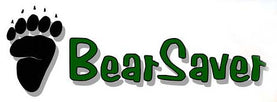Improving Recycling Success with Standardized Labels
Posted by David Moore on
 Many consumers are unaware that recycling in the United States is at risk. Despite efforts by some to collect recyclable materials, we are still falling short of collecting many materials that could be recycled or reused. Similarly, recycling processing plants throughout the United States are experiencing problems, with many being forced to shut down. As a result, even those materials that are collected are often not recycled. At BearSaver, we are concerned about the impact that this might have on our environment. Therefore, in addition, to producing a wide variety of animal-proof trash receptacles and recycling bins, we have also teamed up with Recycle Across America in an effort to help alleviate this problem.
Many consumers are unaware that recycling in the United States is at risk. Despite efforts by some to collect recyclable materials, we are still falling short of collecting many materials that could be recycled or reused. Similarly, recycling processing plants throughout the United States are experiencing problems, with many being forced to shut down. As a result, even those materials that are collected are often not recycled. At BearSaver, we are concerned about the impact that this might have on our environment. Therefore, in addition, to producing a wide variety of animal-proof trash receptacles and recycling bins, we have also teamed up with Recycle Across America in an effort to help alleviate this problem.
Dealing with Contamination
While many factors may be contributing to the lack of recycling in the United States, one of the driving forces behind recycling centers shutting their doors is contamination. In the state of California alone, more than 1000 recycling centers and processing plants have been shut down in recent months. This is largely due to the fact that the public is throwing a lot of other waste into recycling bins, resulting in contamination that is costly to remove. The added cost of removing contaminants cuts into any potential profit margin that recycling centers may enjoy, thereby increasing the cost of recyclables and preventing many manufacturers from using them. Examples of garbage that is often thrown into recycling bins include:
- Coffee Cups
- Diapers
- Food Waste
- Plastic Bags
- Plastic Straws
- Styrofoam
- Wrappers
Even items such as garden hoses are sometimes found in recycling bins. While this may sometimes be the result of laziness, most people simply do not know what materials are truly recyclable, or they are confused by the bins that are supposed to collect recyclable materials. For these reasons, the non-profit organization Recycle Across America is focused on creating consistent, clear labels for recycling bins while also clarifying what is recyclable. The organization also hopes to increase national messaging about the importance of recycling and doing it correctly.
Creating Consistency
In an effort to reduce confusion about recycling, Recycle Across America hopes to create labels that are consistent regardless of the city or state that you are visiting. Currently, recycling labels may not even be consistently the same throughout the state, as the types of labels used have been created by individual governments, organizations, and businesses and, therefore, suit their unique styles. This lack of consistency only further exacerbates the problems with regard to confusing consumers.
To address this problem, BearSaver has partnered with Recycle Across America in order to create and utilize standardized labels to suit nearly every sorting need and type of bin. By creating and using standardized labels, we hope to make it easier for consumers to recycle correctly. Already, standardized labels have helped increase recycling levels by 50 to 100 percent where deployed while also significantly reducing the amount of extra garbage that is placed in these bins. With recycling being the most important action that consumers can take to help the environment while also preventing waste from going into oceans and landfills, standardized labeling seems like a simple solution to a massive problem.
